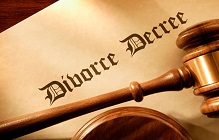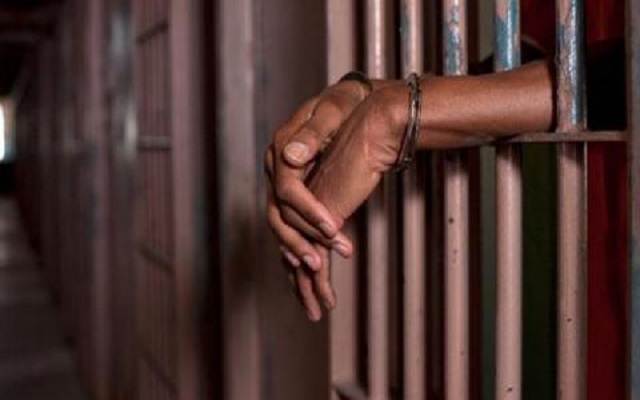Trampling on the Coat of Arms: PMB not to blame
BY Busuyi Mekusi
|
Blames are ‘gifts’ human beings like to share very freely to others, even when they are themselves entitled to a greater proportion of the sum total. The defense put up by Adam and Eve at the Garden of Eden, after they were confronted with the culpability of their infraction on the instruction of the Garden Owner not to eat of the tree at the centre of the orchard, reveals how percolating blames could be, as well as how the last bus-stop is the voiceless or silent, like the serpent. The ‘devil’ remains a contemporary scapegoat for the infringements committed by many individuals, for which they derived maximum benefits until the moment of retribution, and it is hoped the devil would get justice someday, as injustice of any kind is a violation of basic principles of human existence. Despite the redundancy imposed by bigotry, the tenets of human relations are known, practicable and subsisting!
One unique artistic material that interrogates the intricately complicating webs in human trajectories, particularly in relation to helplessness and fallibility, is Ola Rotimi’s The Gods Are Not to Blame, which is an adaptation of Sophocles’ Oedipus Rex. The text tells the complex story of a new born baby, Odewale, who the Ifa Priest, through divination, reveals would kill his father and marry his mother. To avoid this, a servant to Odewale’s father and king, Gbonka, is saddled with the responsibility of killing the baby in the forest, but decides to exercise his humane discretion of handing the child to a foster father, Ogundele, who he meets along the way. Odewale, based on unchangeable construction of divine ordering, gets to meet an old man when he runs away from his foster parents in an attempt not to fulfill negative expectations, has issues with the man over space, and kills him in self-defense. He ends up in his original community as a fugitive, helps in fighting wars, and is made king based on popular demand, negating established protocols, and marries the queen, his natural mother. Most analysts would blame Odewale for his tragic flaw of anger.
PMB attendance of the 2022 yearly ritual of the Armed Forces Remembrance Day celebration parade in Abuja, which has to do with the laying of wreaths and releasing of artificially-caged pigeons, did go with an assault on the corporate identity of Nigeria and the collective psyche of citizens. This is not to say that some were not aware of it, even if they would see anything wrong in it, as the hullabaloos created by the unveiling of the presidential intention of Tinubu were both euphonic and cacophonic, depending on which eardrum they hit. On the red carpet that heralds the President to the circumference of the arena, and the rostrum on which he took the salute were two spots embroiled with the coat of arms of Nigeria. In the eye of the public, and in the full glare of the diplomatic communities in attendance, the President, consciously or unconsciously, deliberately or inadvertently, reminiscent of a General, triumphantly, staunchly and confidently ‘trampled’ on the insignia of our identity, strength and ambition. How best can we realise that the so-called remembrance ceremony is a ‘dismembering’ of the fallen soldiers!
The coat of arms is described as a special design in the form of a shield that is used by families, towns, countries or organisations as a symbol of identity. It could be called heraldry, crest, insignia, escutcheon, etc. The Britannica sees it as part of system of hereditary symbols that dates back to early medieval Europe, used primarily to establish identity in battle, with the presence of arms denoting family descent, adoption, alliance, property ownership, and, eventually profession. The coat of arms of Nigeria is made up of a black shield with a wavy white pall, standing for the meeting of the Niger and Benue Rivers at Lokoja. The black shield represents the fertile soil, while the two supporting horses or chargers on each side typify dignity. The eagle symbolises strength, whereas the green and white bands on the top of the shield stand for the rich soil. Regrettably, the geographical borders of the confluence state of Kogi now appear a marker between the highly combustive North and trepid South, the fertile soil is degraded by deforestation and uncontrolled grazing, even though there is now rice pyramid in the nation’s capital, away from the farms that produced it. The strength of the nation is being eaten up by hard drugs, banditry and terrorism, as dignity has been swallowed by greed.
PMB’s missteps during this outing could not have been blamed on him, as there are officers, protocols and designated political office holders who are responsible for the characterization and structuring of the activities of the President, including the strict examination of places he would interact with, to forestall eventualities. Therefore, the abnormal beautification of the presidential red carpet is analogous to dressing a pig in white, just because of the decision of the owner to take it to a public space. If what the officers-in-charge did was best in their own estimation, it would clearly reveal how deficient handlers of government and its programmes at that very high level are. The people saddled with government activities at that level are supposed to be skilful, dexterous, diligent and smart, beyond the anything-go attitude of an average Nigerian. Definitely, they, and not PMB, are to blame!
This simple but fundamental error of judgment raises questions around what gerontocracy throws up. Gerontocracy is a form of social organisation in which a group of old men or coalition of elders dominates or exercises control, particularly when such domination is at the expense of younger people who are in the majority. While leaders who are octogenarians and septuagenarians are not strange, from Africa to America, and from Asia to Europe, the prevalence of old people leading in the Africa continent has assumed a worrisome dimension akin to any other disease with epidemic proportions. In affected countries in Asia, concerned old leaders are handing over to younger folks, while the permissibility of the reign of Joe Biden, the 78 year old America President, is hinged on the solid long-standing and time-tested institutions that make governance easy. Such could not be said of 79 year old Nigeria President, Buhari, who has repeatedly openly lamented about old age as a huge liability.
In the first instance, PMB had wished he was younger when he became Nigeria president in 2015, after which he has expended very precious parts of his administration to treat an undisclosed ailment in the United Kingdom. The last open confession he made was during a media chat with the Nigerian Television Authority (NTA), when he acknowledged that age was telling on him, noting that he was working up to six and eight hours daily. Ordinarily, governance is said to be a very serious business that the twenty-four hours that make a day could not sufficiently tackle. The routine of the President is similar to that of an average Civil Servant that could sneak out of office, not minding the serious matters on his table, for which he could have spent some overtime. PMB is not to blame, as he deserves some good rest as an septuagenarian, having spent some quality times to actively serve the nation, at different levels and times. We must blame ourselves for choosing an old man to lead the most populous black nation, just because we were left with a Hobson’s choice in 2015.
Old age, predictably, has so much to do with the degeneration of body parts. This is apart from the fact that some parts of the body could ‘revolt’ very early in one’s existence. The brain, which controls the nervous system, gets burdened very easily, and its effectiveness in governing a complex nation like Nigeria is a sine qua non. Whereas experience that is found in old age is important at critical junctures of a nation, the coordination of national activities and thinking- through of very sensitive stringent matters could not be subjected to a mind nursing involuntary amnesia. Statesmen are better consulted, selectively on national issues, rather than load them with details of the problems plaguing a pluralistic nation where mistrust, insecurity, poverty, corruption and other negative vices are rife.
As agitations for the Aso Villa in 2023 continue, we the people of Nigeria must rise above personal and primordial interests, lifelong individual ambition, ethnic bigotry, and mere tokenism to choose a president that would be an asset and driver of national rebirth than get entangled in another instance of problematic gerontocracy, that we would not all be blamed again.









